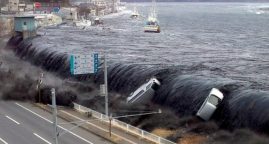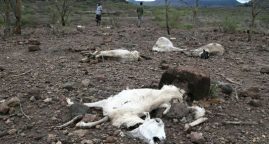Pay now to protect 1 billion people from coastal floods
20 cities most at risk from flooding
As sea levels rise, so will the costs of dealing with it, Christian Aid reminds us in a report released today.
“Spending money now on reducing the risk of disasters will save money and lives later,” said report author Dr Alison Doig in a statement.
More than one billion people will be exposed to coastal flooding by 2060, the report says. Most of them will be in Asia, where the seven most vulnerable cities are. India’s Kolkata and Mumbai top the list, followed by the Bangladeshi capital, Dhaka.
The nation with the most people living in areas vulnerable to coastal flooding is China, home to six of the 20 most financially vulnerable cities.
Four of the other top 20 cities are in the United States, including the city with the most materially to lose: Miami. With $3.5 trillion worth of exposed assets, it is projected to pay the highest cost of coastal flooding by 2070.
The growth of coastal populations combined with rising sea levels due to climate change has created “a perfect storm”, said Doig.
Poor people will bear the brunt of it. UN Secretary General Ban Ki-moon has called for the percentage of global aid for disaster risk reduction to be doubled to one percent, or one billion dollars. The report’s authors suggest raising that figure to 5 percent, arguing that although it sounds like a large amount: it’s better to pay that now than to pay more later.
Read the article on Irin website
Related Articles
World Disasters Report 2015
10/31/2016. The key to humanitarian effectiveness
More than a tree …
Between 2008 and 2011, Malteser International has helped the community Kyae Taw planting almost 18,000 mangroves, protecting more than 3,000 residents of two villages.
New UN-backed report cites climate change among factors fuelling internal displacement
06/12/2016. The release of a global report revealed that more than 19 million people in 2015 were forced from their homes by natural hazards.






